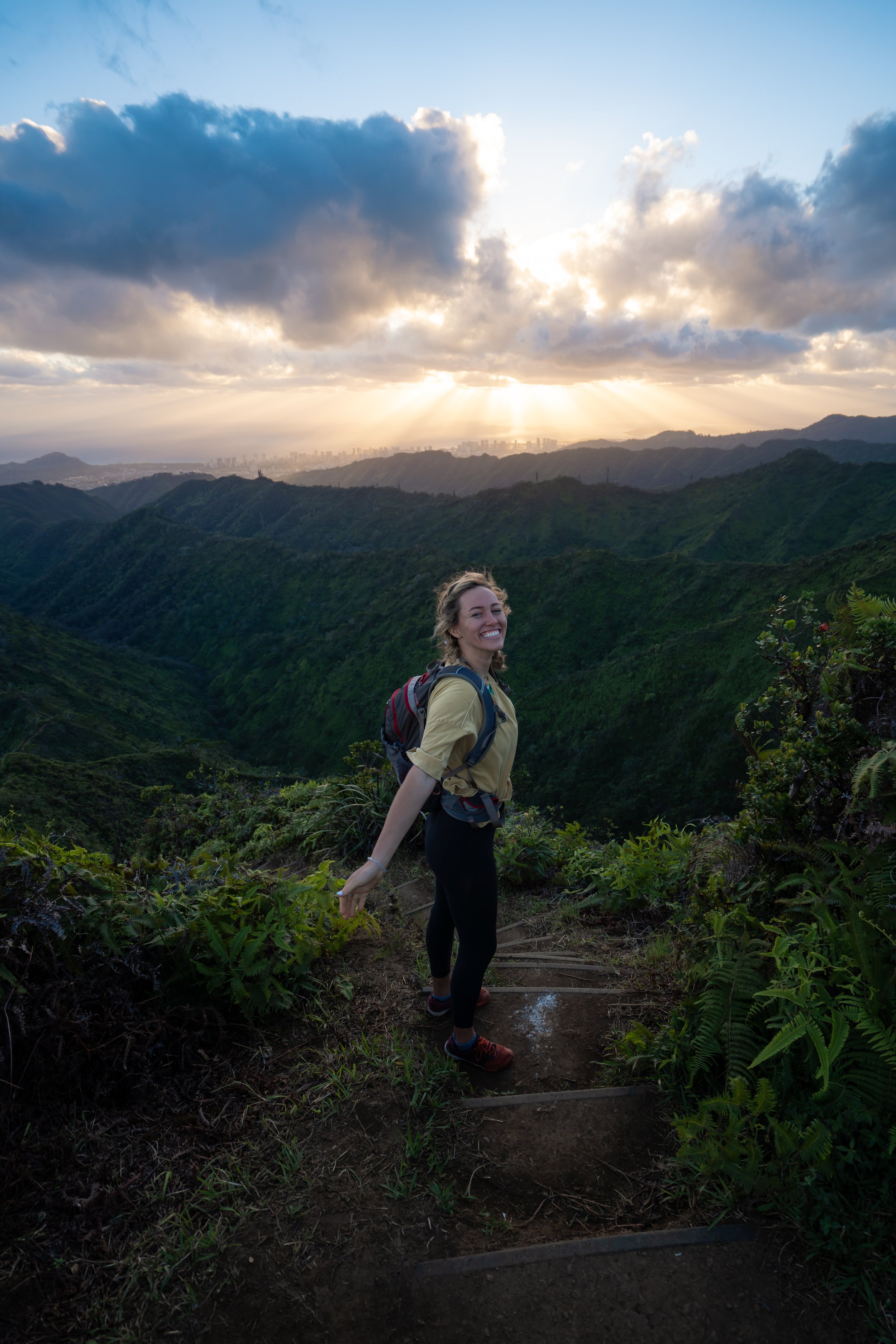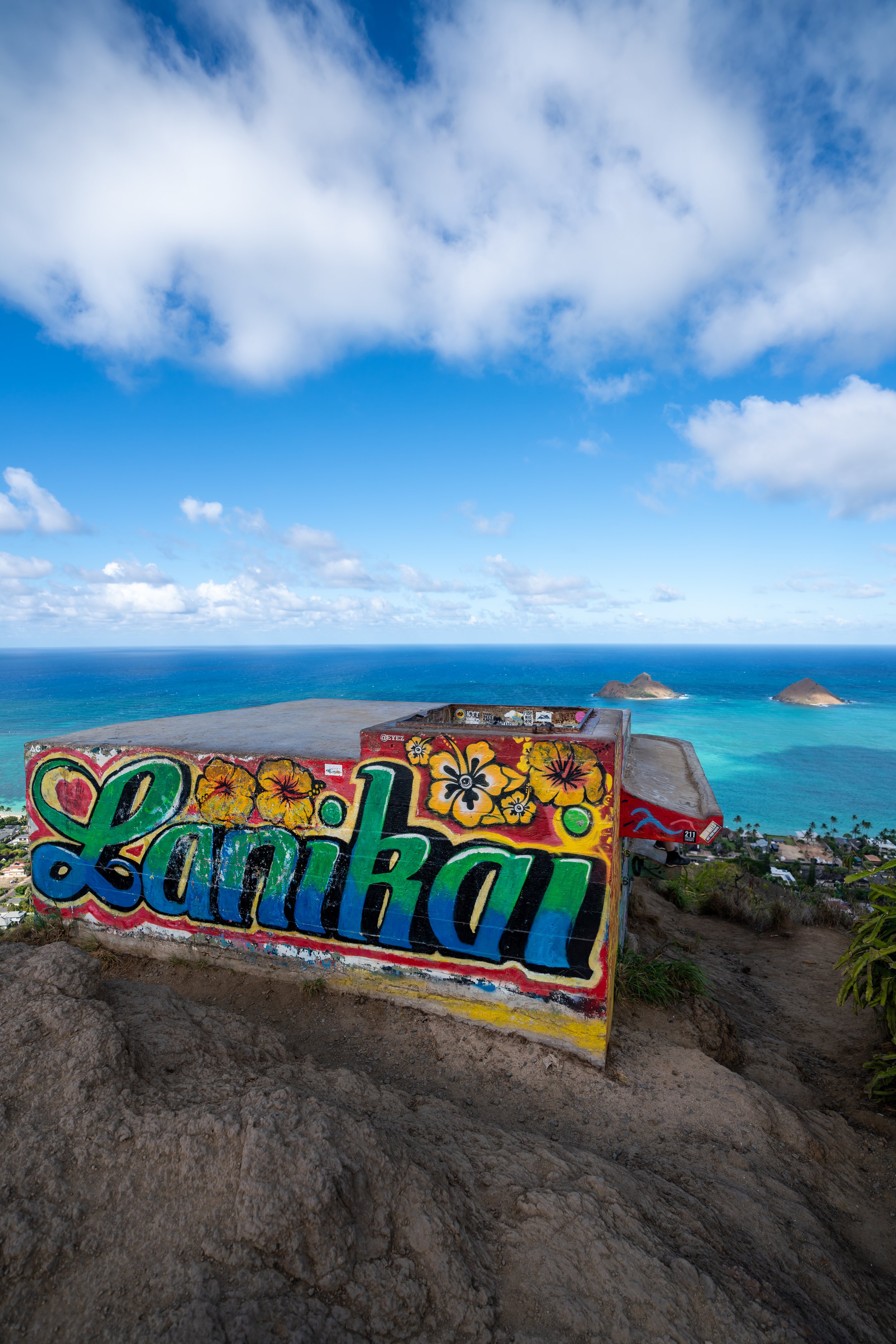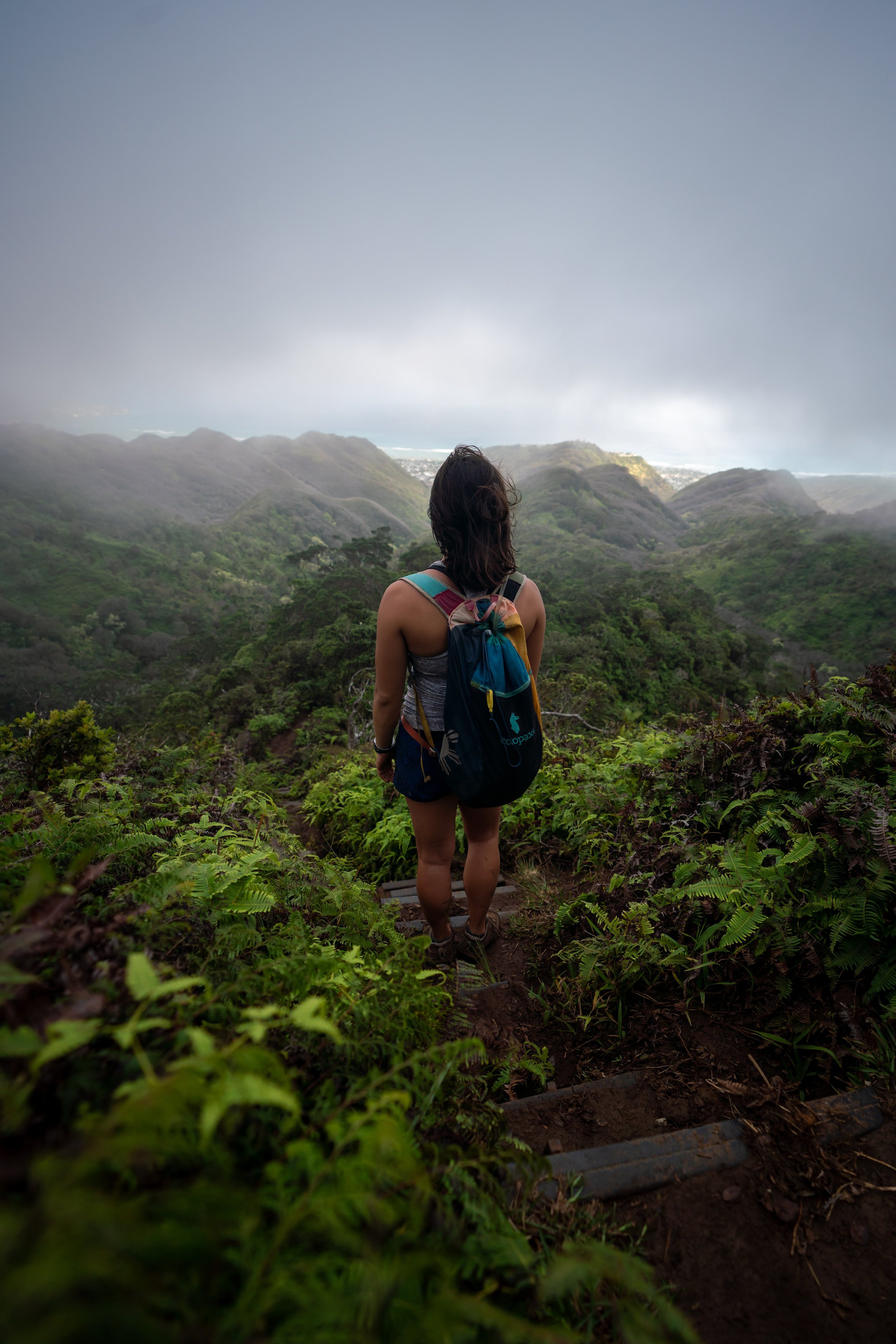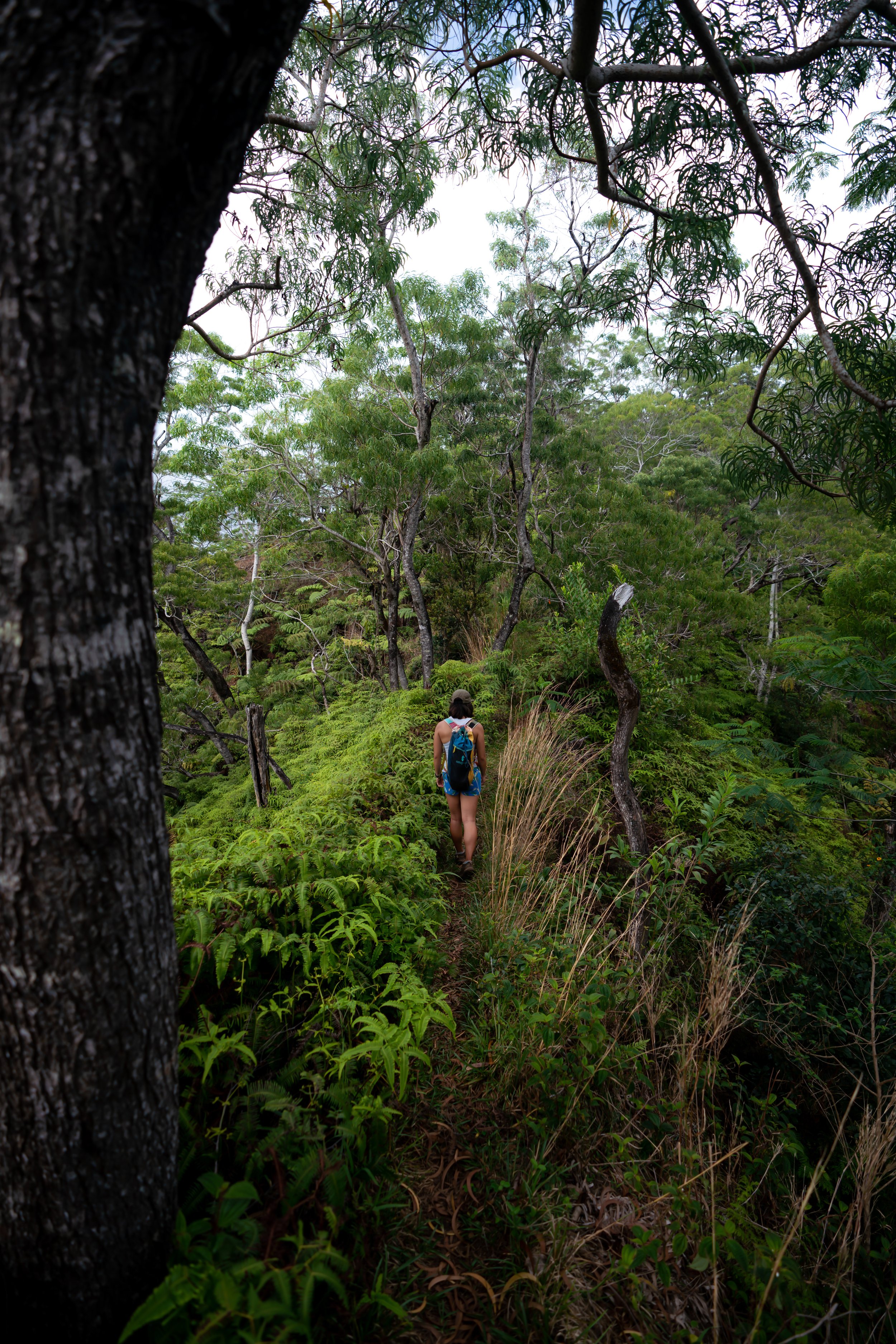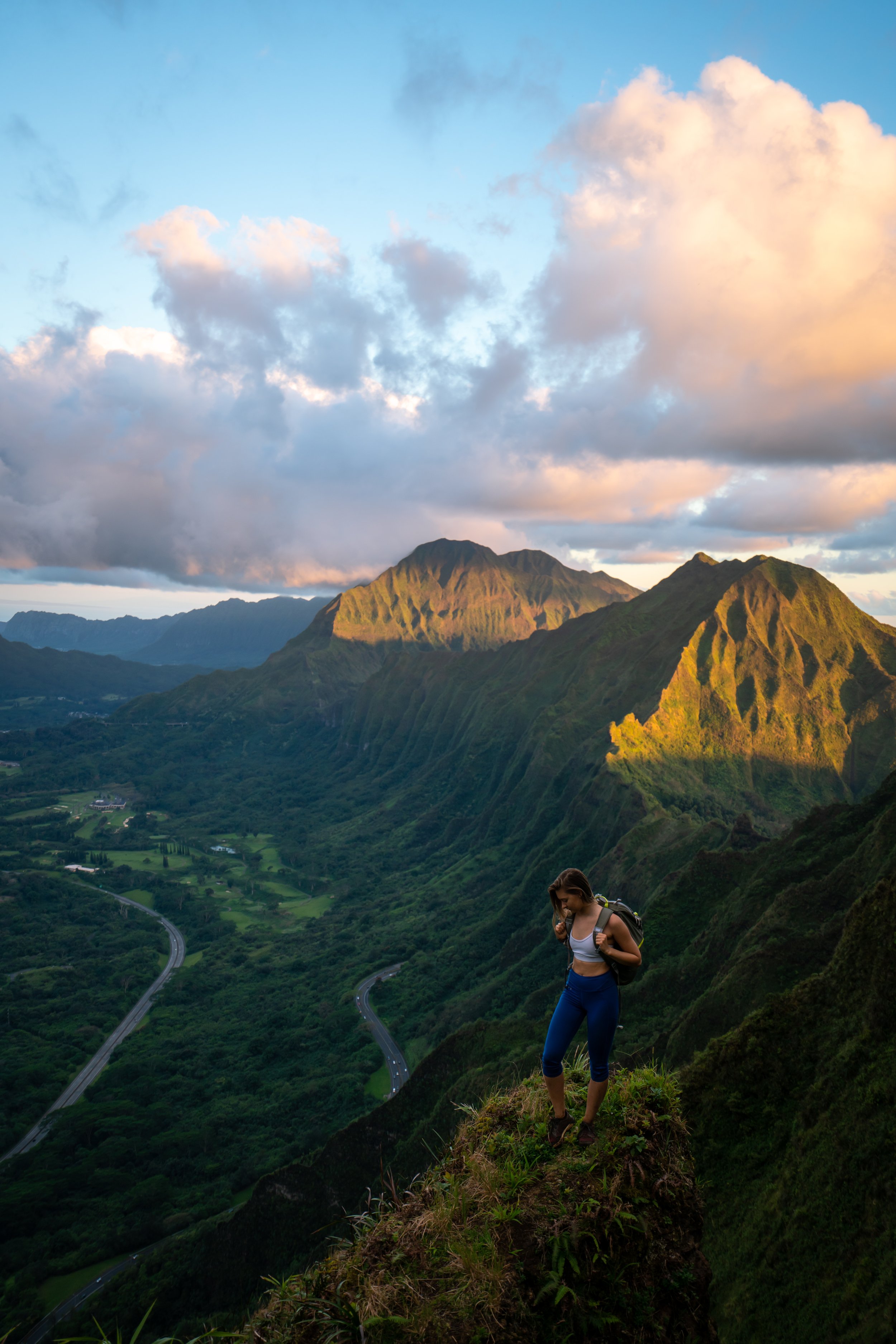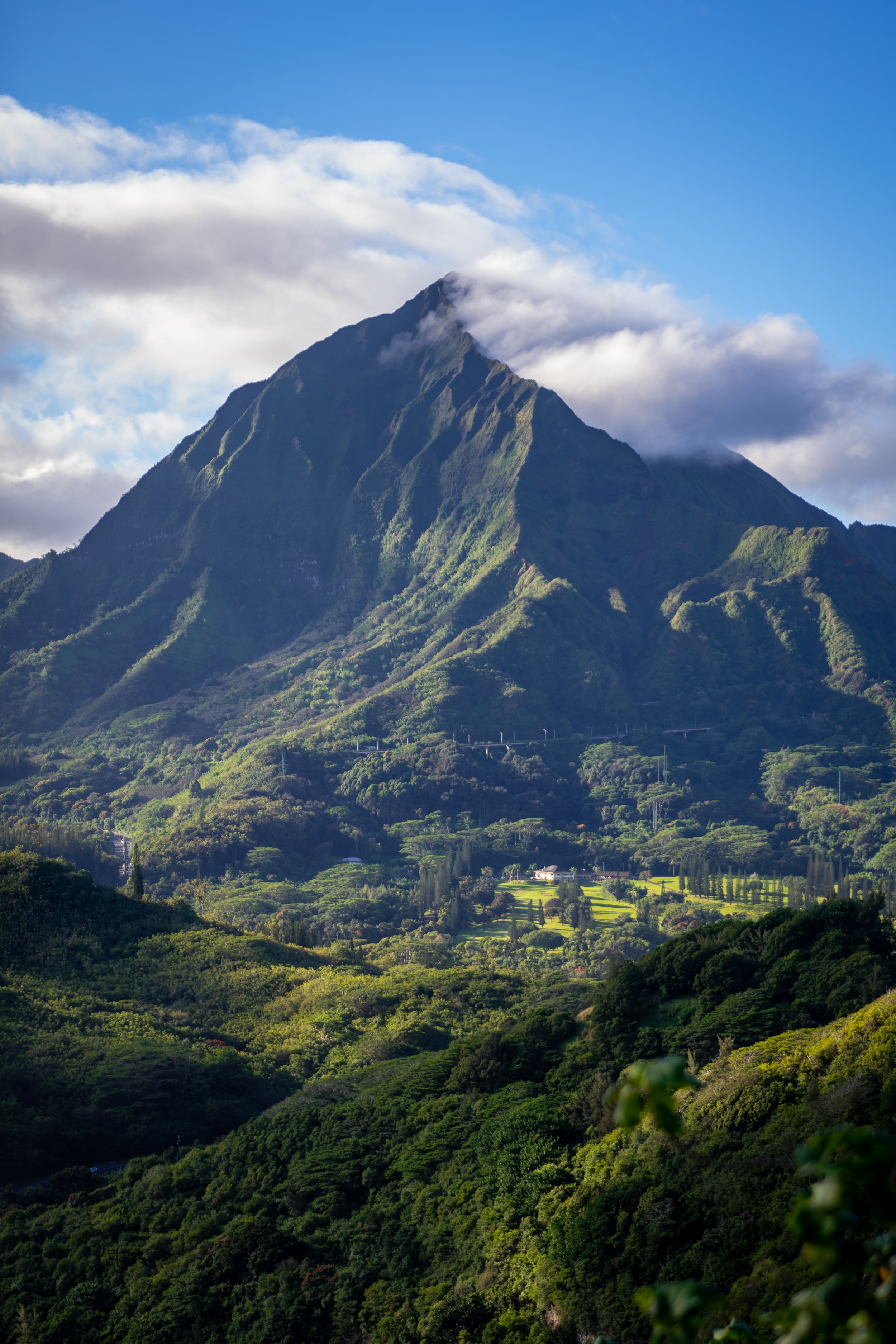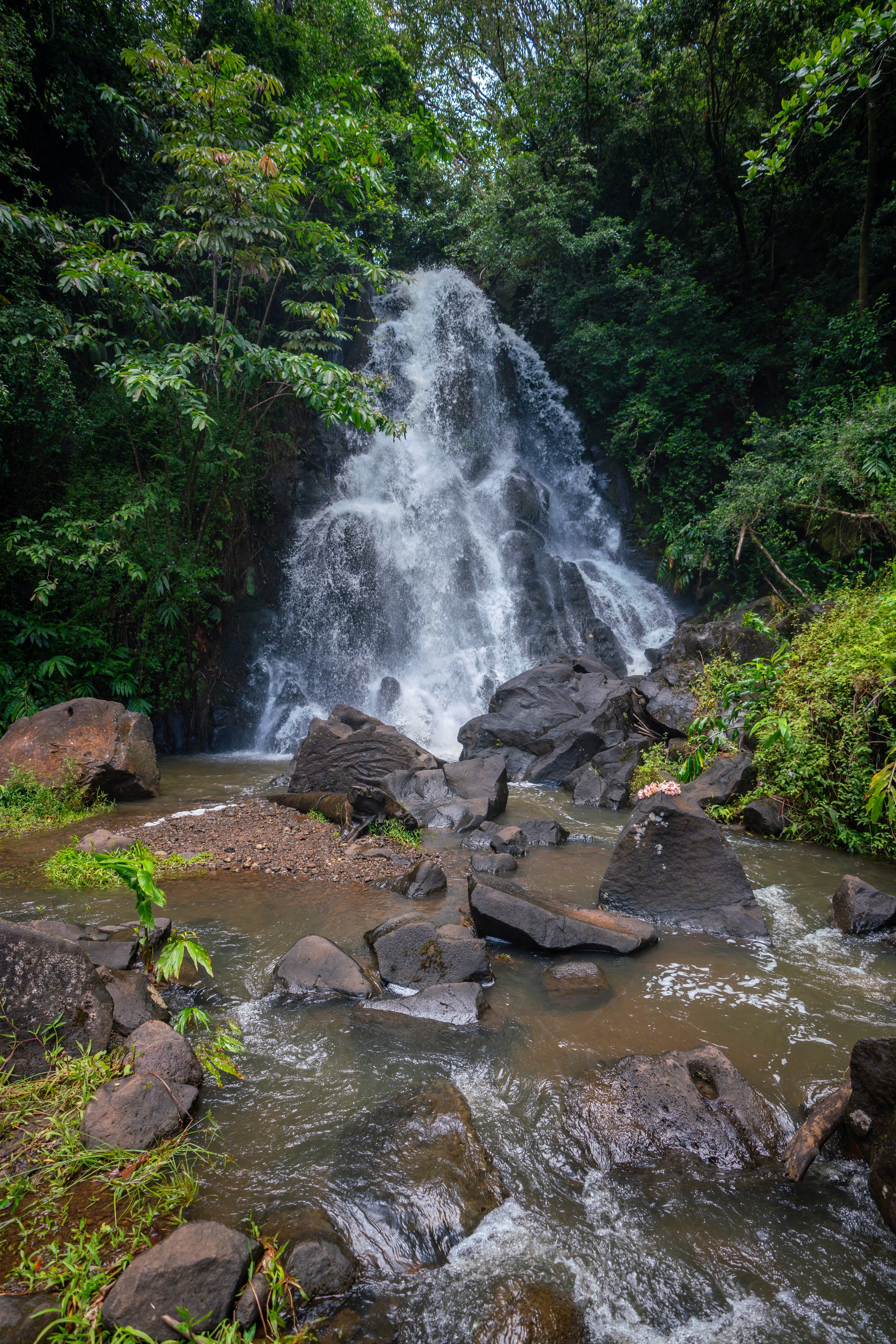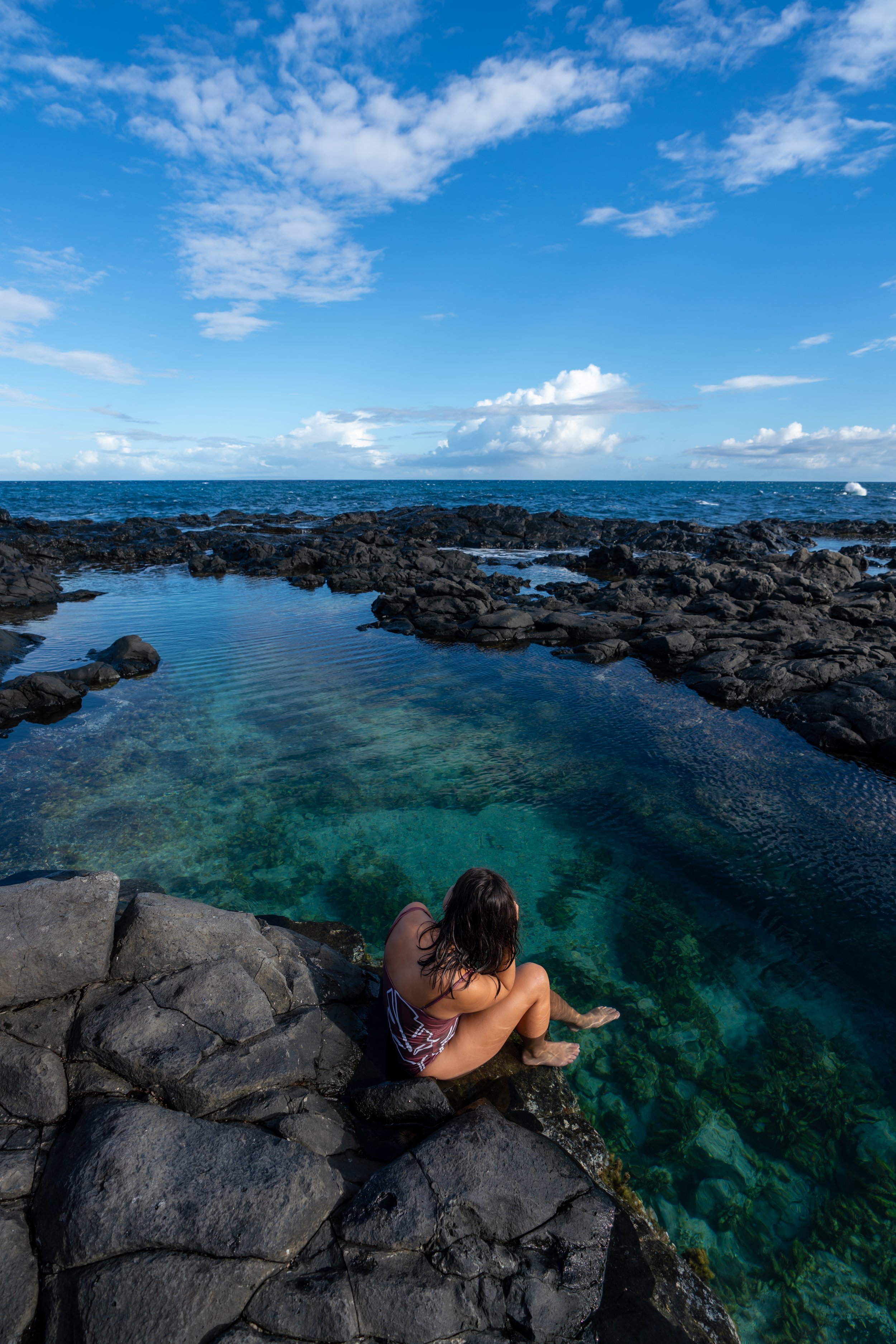Hiking the Papali Ridge Trail on Oʻahu, Hawaiʻi
Distance (Roundtrip): 9.4 miles / 15.1 km
The Papali Ridge Trail in the northern Koʻolaus on Oʻahu is a ridge not often hiked by like others on the island, where the primary goal is to enjoy the views from the summit.
I say this because Papali Ridge is one of the more challenging hikes on Oʻahu, and because it’s such a long and tedious trail, Papali is by and large an access trail. Whether your goal is to complete the Castle Trail or hike as far as the Koʻolau Summit and beyond, the Papali Ridge Trail is typically only used for one of these two options.
This is all to say that Papali Ridge is, without a doubt, one of the best access trails into the northern Koʻolaus, as this, along with the Pūpūkea Summit Trail from Kaunala and the Lāʻie Ridge Trail past Lāʻie Falls, are the three northernmost trails up to the KST before Poamoho further south.
To skip ahead to the start of Papali Ridge, click here.
Papali Ridge Trailhead Parking
Parking for the Papali Ridge Trail is located on Honomū Street in Hauʻula, the same street parking as Maʻakua Ridge and the Hauʻula Loop Trail.
That said, please park responsibly and do not block driveways. I say this because I don’t suggest parking here in either my Maʻakua Ridge or Hauʻula Loop Trail articles, as these are more popular hikes that inevitably attract more people, including tourists, to the local Hauʻula neighborhood.
Google Maps Directions: Papali Ridge Trailhead
Hiking the Papali Ridge Trail
The Papali Ridge Trail begins at the end of Hauʻula Homestead/ Maʻakua Road, which is marked by a Nā Ala Hele trail sign for both the Hauʻula Loop and Maʻakua Ridge Trail.
Shortly after passing the sign in the photo above, the road will lead through two sets of gates before reaching the true trailhead, located about 0.1 miles (0.2 km) away on the left-hand side of the road.
Maʻakua Ridge Trailhead
At the joint trailhead, go left to begin Maʻakua-Papali Trail, as the trail on the right begins the separate Hauʻula Loop Trail.
Read My Separate Post: Hauʻula Loop Trail
Maʻakua Stream
Shortly after leaving Maʻakua Road, the trail will come to a large stream crossing.
However, the these lower elevations of Maʻakua Stream will almost always be dry unless it has been raining heavily further up in the mountains.
That said, look across the stream to the right to find the trail that continues on.
After the Maʻakua Stream crossing, the trail will climb about 200 ft. (61 m) up handful of switchbacks to the start of the Maʻakua Loop.
Maʻakua Bench Shortcut
This side trail, branching off the switchback in the photo below, is a shorter but steeper shortcut to the Maʻakua Bench shortly ahead.
That being said, it truly makes no difference which direction you decide to go.
Maʻakua Ridge Bench
It’s no secret that this bench is the best—and only—viewpoint on the Maʻakua Ridge Trail.
I say it like this because the rest of Maʻakua Ridge is more or less a walk in the woods, meaning that most hikers choose to turn around after reaching this point.
Maʻakua Loop Trail
Behind the bench is the start of the Maʻakua Loop.
Here, go right to continue on the fastest route toward Papali Ridge, but if you are interested in reading about the full Maʻakua Ridge Trail, check out my separate post using the link below.
Read My Separate Post: Maʻakua Ridge Trail
Maʻakua-Papali Ridge Junction
At almost exactly 1.5 miles (2.4 km), the Maʻakua Ridge Trail splits with the beginning of the Papali Ridge Trail.
Here, go right to begin Papali Ridge up to the Koʻolau Summit.
Read My Separate Post: Maʻakua Ridge Trail
At first, Papali Ridge begins climbing through a Strawberry Guava–False Koa forest, before it ascends above these sections shortly ahead.
On a different note, Papali Ridge is one of the most unique hikes on Oʻahu in that, apart from these easier sections within the first 0.5 miles (0.8 km), Papali Ridge actually gets easier the further you hike!
Yes, once Papali Ridge reaches some of the most difficult sections within the first mile, the trail actually gets easier the closer you get to the Koʻolau Summit, which is truly an anomaly compared to all other Oʻahu ridge hikes!
It doesn’t take long to climb above the non-native Acacia trees, where Papali Ridge continues ascending into increasingly wetter terrain the higher the trail goes.
It’s amazing how many native plants can be seen at such a relatively low elevation.
At first, these rolling hills are truly mild compared to what’s to come!
Not to be confused with the non-native passion fruit vines that can be seen growing along the trail, Lama trees are a fairly frequent sight on the lower elevations of Papali Ridge.
This steep hill is truly the start of a long climb through some of the most challenging sections on Papali Ridge, which, in my opinion, ends shortly after the 'Whale’s Belly' at Spoon Hill.
It always hurts to lose elevation on Papali Ridge, but there are a number of spots where the trail descends steeply on the way up.
Needless to say, the Papali Ridge Trail is a pants hike, and this will make more sense as the trail goes on.
That being said, the pants below are my recommendations that hold up the best with the overgrowth here in Hawaiʻi, but with any hiking pants that need to be durable, make sure that they are at or near 100% nylon. This is really the most important factor!
The 'Whales Belly'
When Papali Ridge reaches this steep downhill section, you’re entering the 'Whale's Belly.'
In short, a 'Whale’s Belly' is a steep, hot, humid, muddy section, and unless it's fairly windy, the air tends to be pretty still until you get higher up on the ridge.
This is exactly the case here, and it truly doesn't change for the next 0.6 miles (1.0 km) until the Papali Ridge Trail reaches the top of the unnamed peak in the photo below.
It’s a pretty steep drop, but certainly not the steepest section on Papali Ridge.
One common theme for the first 1.8 miles (2.9 km) to Kaluanui is that the ridges on Papali come together.
This means that you can always have a good idea about where you’re going and how much further, based on the ridge to the left of Papali Ridge, as they always converge, the first being the unnamed peak previously mentioned.
This is a better view of the peak mentioned earlier, where there is roughly 650 ft. (198 m) to climb in just 0.6 overgrown miles (1.0 km) to get out of the 'Whale’s Belly.'
This is the view looking back, and I must say, the photo at the very end sums up how much effort this all takes to climb Papali Ridge—especially these initial sections!
This is a landslide in the photos below, which were both taken some years apart.
The first shows what it looks like in the years following, and the second is closer to when it actually occurred.
However, I would argue it’s worse since it has grown back because now the stable ground is tougher to see!
I love it when Kōpiko and ʻAhakea grow side by side because it’s a really great opportunity to see these two very similar-looking species in order to learn to tell them apart.
These steep sections definitely hurt more when you’re carrying gear for multiple nights on the KST.
These are the very last sections through the 'Whale’s Belly!'
When Papali tops out on the ridge, the 'Whale’s Belly,' and the hardest sections of Papali Ridge are behind you!
That’s not to say Papali Ridge gets immediately easier, but it’s surely easier and moves faster than the sections prior.
The turn in the ridge straight ahead is Spoon Hill, and it’s the best spot to take a break thus far.
Spoon Hill
Spoon Hill, located roughly 2.7 miles (4.3 km) into the hike, is truly the first and only break spot on Papali Ridge since leaving Maʻakua, which is great because it’s located just 0.1 miles (0.2 km) away from the end of the 'Whale’s Belly.'
Past Spoon Hill, Papali Ridge continues much like the previous sections, except it is nowhere near as steep!
That said, this next section is only 0.8 miles (1.3 km), but I can almost promise it’ll be one of the slower 0.8-mile (1.3 km) sections you’ll ever hike!
This big 'U' in the ridgeline is one of the more noticeable sections from Spoon Hill to Kaluanui.
It’s fun to see all the different native plants on Papali Ridge, which is truly one of the best Oʻahu hikes to see and learn a lot about native Hawaiian plants compared to trails further south.
There’s a trail somewhere in there!
This is the view looking north toward Kahuku!
This next open clearing is a nice mental checkpoint, but it feels nowhere near as good as Spoon Hill in terms of a spot to take a break.
I say this because the next great spot to rest is the point where Papali Ridge and the ridge to the left come together, which marks the start of Kaluanui.
This is why I previously said that Papali Ridge is all about the ridges converging.
Watch the fence line on the ridge to the left to get a better mental understanding of how much further it is until Kaluanui and the next checkpoint, where Papali Ridge gets even easier than the hike so far!
The peak on the ridge in the photo below is the steepest part of Papali Ridge, but it is certainly nowhere near the most challenging climb on Oʻahu.
If it says anything, the Pali Notches are more difficult than this climb.
This is the base of the steepest climb on Papali.
This is the top of the climb.
That said, consider bringing an extra rope to replace the old one, which can be especially useful someone in your group will need it more than others.
I say this because these remote Oʻahu trails don’t see nearly the same amount of help from the community as other, more popular trails, like the ropes on Mt. Olomana.
This is the view looking back down!
After the climb, the final section before Kaluanui traverses more of the same sections that followed Spoon Hill.
However, this is where the ridge to the left begins to feel closer than ever before, marking the end of the most difficult sections!
This steep hill marks the last significant down and up before the fence at Kaluanui.
This is the view looking back after the down and up just mentioned.
When these Lapalapa trees begin, you know you’re getting higher, as this species is a telltale sign, being that they only grow in some of the wettest environments on Oʻahu and Kauaʻi, like Mt. Kaʻala.
One of the coolest things about Kanawao is that Broussaisia is an endemic genus to Hawaiʻi, and B. arguta is the only species within the genus, much like the famous Ginkgo in Japan.
Kaluanui Natural Area Reserve
The Kaluanui management unit, the protected area on the other side of the fence line, marks the end of the difficult hiking on Papali Ridge.
Yes, for once on Oʻahu, the hiking actually gets easier on Papali Ridge from here to the Koʻolau Summit!
On a different note, drop a pin or, at the very least, make a mental note of this junction if you plan to hike back down Papali Ridge, because this turn can be extremely easy to miss!
I have done it, and I know other friends who have as well, because when you’re not paying attention, it seems as if you just keep following the fence line, when instead it’s time to split away.
After the sign, the Papali Ridge Trail does a short little traverse before it tops out on Castle Hill, which may be the best 360º view on the entire hike!
Castle Hill
This little hill above the fence is the Castle Hill, and it’s always one of my favorite places on Papali Ridge because of the panoramic views!
After Castle Hill, the Papali Ridge Trail does a short but steep 0.1-mile (0.2 km) descent down to the Castle junction.
Papali Ridge-Castle Junction
Below Castle Hill, Papali Ridge finally meets the Castle junction after roughly 3.5 miles (5.6 km) of hiking.
That said, the Castle Trail is one of the least-hiked trails on the island, and it’s even rarer to complete the full trail down into Punaluʻu.
If you are curious to learn more, you can check out the full hike using the link below.
Read My Separate Post: Castle Trail
Papali Contour Trail
After the Castle Trail, Papali Ridge gets even easier, as it begins the gradual contour trail from here to the summit.
That is to say, the Papali Ridge Trail no longer traverses the ridgeline, but rather winds its way along the edges of Kaluanui, where it gains roughly 350 ft. (107 m) over the final 1.2 miles (1.9 km).
These Loulu palms have been a staple on this section of Papali for many, many years!
This next part is another very steep climb like the last, but with the fence to grab onto, it’s certainly much easier to navigate.
After the short but steep section above, the Papali Ridge Trail levels out for the rest of the hike to the summit.
This part of Papali Ridge feels like a highway compared to the beginning!
One cool thing about these Loulus is that they are endemic to Koʻolau Mountains, meaning that the Loulus seen here and the Loulus seen in the Waianaes are two separate species, both endemic to their respective ranges.
Having bright, sunny weather is quite a rare sight throughout these remote areas on the island, but for as long an adventure as Papali Ridge, I highly recommend hiking in a hooded long sleeve for both the sun and the overgrowth!
When the Papali Ridge Trail reaches this cliff in the distance, it’s a nice sign that the summit is getting close!
This is probably the best mental checkpoint after such a long and tedious hike thus far!
On a different note, the area just over the fence to the left of the cliff, just mentioned, is the uppermost reaches of Kaluanui Stream, the origins of Sacred Falls.
Papali Summit
Measuring roughly 2,730 ft. (832 m), this is the summit of Papali Ridge, which looks notably different from the peaks on the Koʻolau Summit further south.
In any case, Poamoho is to the left (south), and Kōloa and Lāʻie Ridge is to the right (north), which can be seen in more detail in my separate article about the full summit, linked below.
Read My Separate Post: Koʻolau Summit Trail (KST)
If this photo doesn’t sum up Papali Ridge, I don’t know what will!
I mean it when I say Papali Ridge, at only 4.7 miles (7.6 km) each way, is a long and tedious hike—and yes, that number includes the easy 1.5 miles (2.4 km) on Maʻakua Ridge at the beginning.
That’s all to say again that Papali Ridge is almost never the goal, but rather an access trail, and the same was true for us on this day!
Native Plants on the Papali Ridge Trail
I always think of Papali Ridge as one of the best Oʻahu trails to see a ton of native Hawaiian plants, and this trend only gets better and better the higher you hike!
With that in mind, native plants such as ʻŌhiʻa lehua, Kōpiko, ʻŌhiʻa ha, Kōlea, Maile, Alani, Hoe-a-Māui, and Lama can be seen on Papali, and this is only scratching the surface of how many more one can expect to see!
If you would like to know more about these and tons of other native Hawaiian plants from across the islands, I encourage you to check out my separate post linked below.
Read My Separate Post: Native Hawaiian Plant Guide



